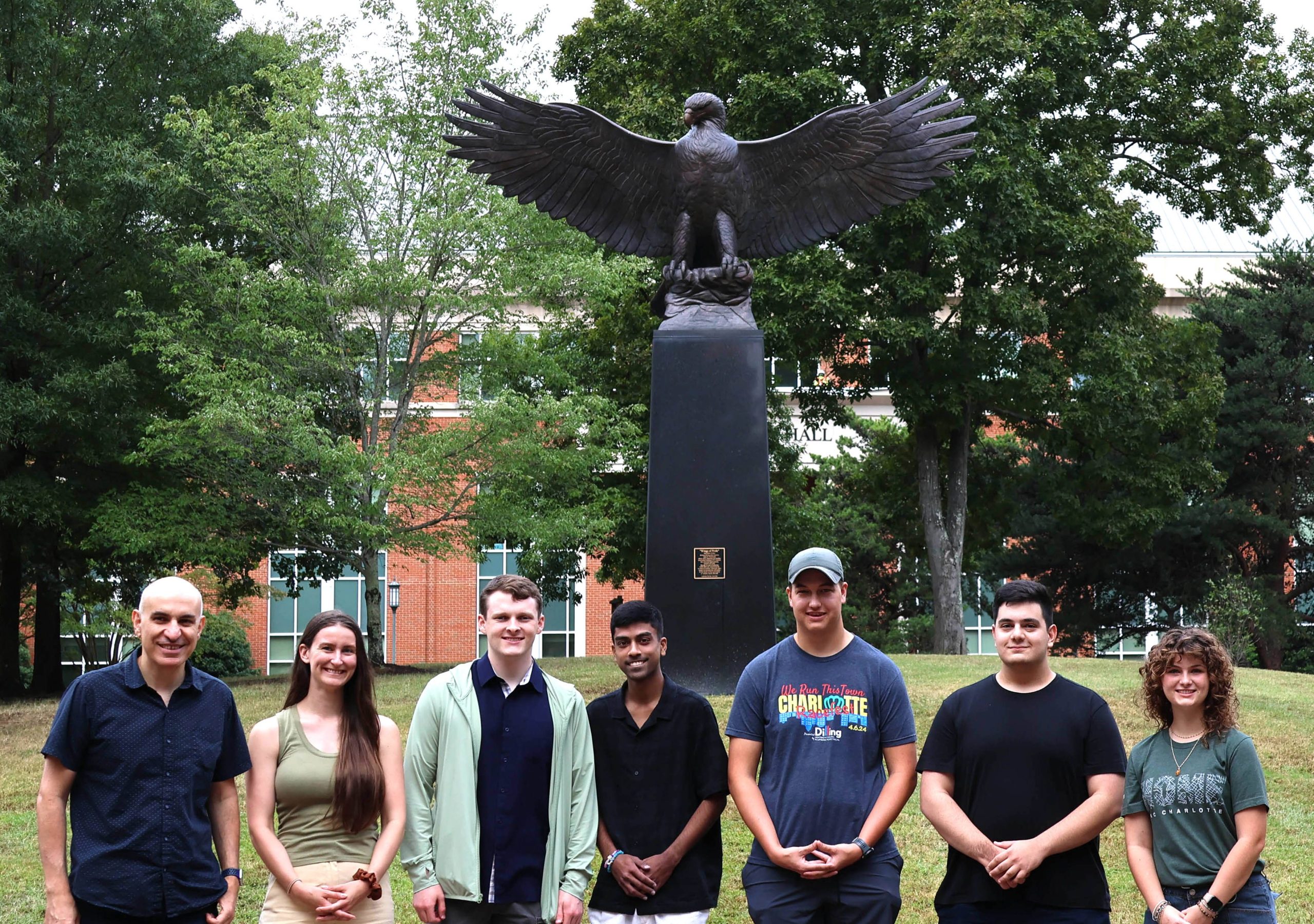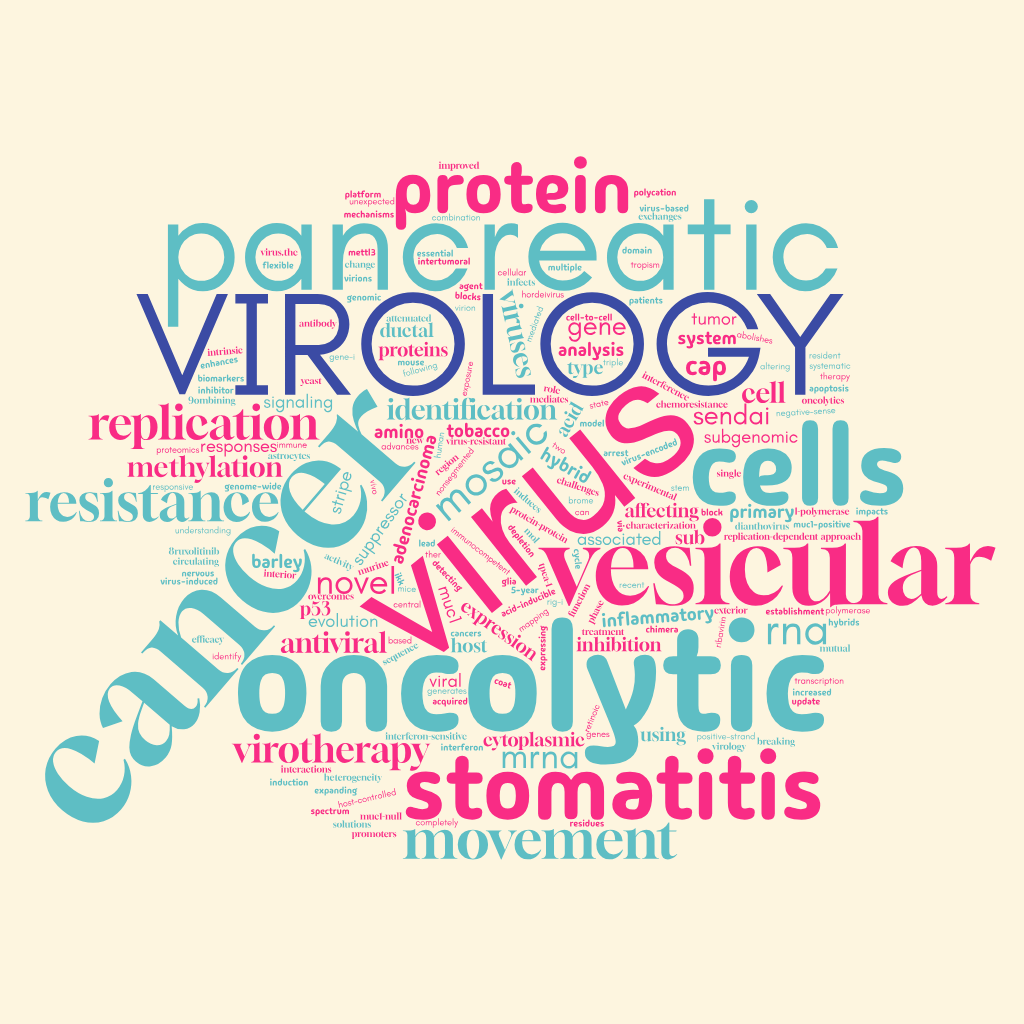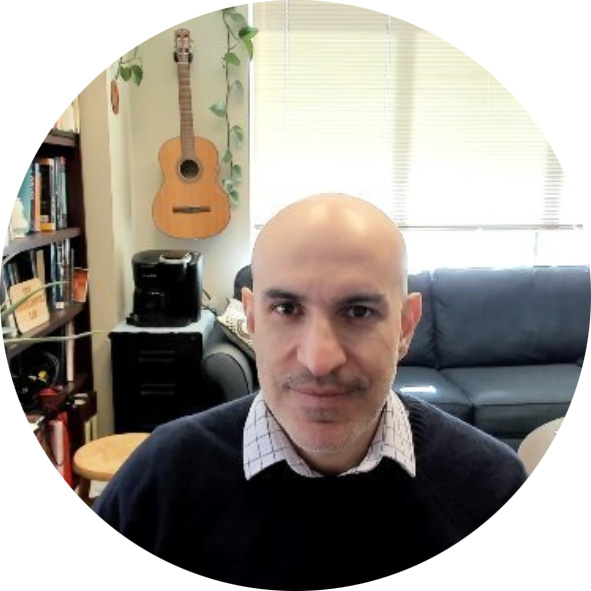Valery Z. Grdzelishvili, Ph.D.
Professor, Molecular Virology and Cancer Therapy
Dr. Grdzelishvili’s laboratory focuses on the molecular biology of nonsegmented negative-strand (NNS) RNA viruses (order Mononegavirales). This group includes several significant human and animal pathogens, such as rabies, measles, mumps, Ebola, Marburg, Nipah, and Hendra viruses. The laboratory is particularly interested engineering NNS RNA viruses, primarily vesicular stomatitis virus (VSV), as replication-competent oncolytic agents for cancer therapy. A major area of research involves identifying viral and cellular factors that influence the susceptibility or resistance of pancreatic cancer cells to VSV and other oncolytic viruses, as well as developing innovative strategies to overcome resistance to oncolytic virotherapy in pancreatic cancer.
Publications at PubMed / Dr. Grdzelishvili’s Google Scholar Profile / Grdzelishvili Lab Twitter
Keywords: molecular virology, cancer biology, anticancer therapy based on replication-competent viruses (“oncolytic virotherapy”), virus-host interactions in normal and cancer cells, host factors of virus replication in normal and cancer cells, innate immunity in normal and cancer cells, virus-based gene therapy, vaccine vectors, negative-strand RNA viruses (order Mononegavirales)

Left to Right: Valery Grdzelishvili, Cassandra (Cassie) Catacalos, Jacob Hawkins, Aroosh Goje, Nathaniel Foret, Irakli Mataradze, Charlotte Johnstone

Valery Z. Grdzelishvili, Ph.D. / Short Bio
Academic Degrees
- Ph.D. in Virology: Lomonosov Moscow State University, Department of Virology, Russia (1998)
- M.S./B.S. in Biochemistry: Lomonosov Moscow State University, Department of Virology, Russia (1995)
Professional Experience
- Professor (July 2018-present): University of North Carolina at Charlotte, Department of Biological Sciences
- Associate Professor (July 2012-June 2018): University of North Carolina at Charlotte, Department of Biological Sciences
- Assistant Professor (July 2006-June2012): University of North Carolina at Charlotte, Department of Biological Sciences
- Research Assistant Professor (2004-2006): University of Florida College of Medicine, Dept. of Molecular Genetics and Microbiology [Mentor: Dr. Sue Moyer]
- Postdoctoral Research Associate (2001 – 2004): University of Wisconsin-Madison, Institute for Molecular Virology and Howard Hughes Medical Institute (HHMI) [Mentor: Dr. Paul Ahlquist]
- Postdoctoral Research Associate (1999 – 2000): University of Florida, Institute of Food and Agricultural Sciences, CREC [Mentor: Dr. William Dawson]
Selected Peer-Reviewed Publications (see all publications in the “Lab Publications” tab)
- Catacalos-Goad C., Goad D.W., Holbrook M.C., Krueger Q., Wilson I.M., Hajjar M.A., Grdzelishvili V.Z.. 2025 “Fostamatinib (R788), a spleen tyrosine kinase inhibitor, sensitizes pancreatic cancer cells to oncolytic vesicular stomatitis virus”, Molecular Therapy Oncology, Volume 33, Issue 4, 201089, https://doi.org/10.1016/j.omton.2025.201089.
- Catacalos-Goad C, Johnstone C, Grdzelishvili VZ. 2025 “Vesicular Stomatitis Virus-Based Oncolytic Virotherapy: Recent Progress and Emerging Trends” Current Oncology. 2025 Nov 7;32(11):627. doi: 10.3390/curroncol32110627. [PMID: 41294689].
-
Catacalos-Goad C, Hawkins J, Krueger Q, Foret N, Grdzelishvili VZ. 2025 “METTL3 depletion blocks vesicular stomatitis virus replication in pancreatic cancer cells through the establishment of an intrinsic antiviral state” Journal of Virology 2025 May 20;99(5):e0228424. doi: 10.1128/jvi.02284-24. Epub 2025 Apr 11. [PMID: 40214229]
-
Goad DW, Nesmelova AY, Yohe LR, Grdzelishvili VZ. 2023 “Intertumoral heterogeneity impacts oncolytic vesicular stomatitis virus efficacy in mouse pancreatic cancer cells” Journal of Virology 2023 Sep 6:e0100523. doi: 10.1128/jvi.01005-23. [PMID: 37671865]
- Goad D.W., Bressy C., Holbrook M.C., and Grdzelishvili VZ. 2022 “Acquired chemoresistance can lead to increased resistance of pancreatic cancer cells to oncolytic vesicular stomatitis virus” Molecular Therapy Oncolytics. 2022 24:59-76. [PMID: 34977342]
- Seegers S.L., Frasier C., Greene S., Nesmelova I.V., and Grdzelishvili VZ. 2019 “Experimental Evolution Generates Novel Oncolytic Vesicular Stomatitis Viruses With Improved Replication in Virus-Resistant Pancreatic Cancer Cells”. Journal of Virology, 2020 Jan 17;94(3):e01643-19. [PMID: 31694943]
- Bressy C, Droby GN, Maldonado BD, Steuerwald N, and Grdzelishvili VZ. 2019 “Cell Cycle Arrest in G(2)/M Phase Enhances Replication of Interferon-Sensitive Cytoplasmic RNA Viruses via Inhibition of Antiviral Gene Expression”. Journal of Virology, 2019 Feb 5;93(4). pii: e01885-18. [PMID: 30487274]
- Felt S.A., Droby G.N., Grdzelishvili V.Z. 2017 “Ruxolitinib and polycation combination treatment overcomes multiple mechanisms of resistance of pancreatic cancer cells to oncolytic vesicular stomatitis virus” Journal of Virology, 2017, 91(16)
- Hastie E., Cataldi M., Moerdyk-Schauwecker M.J., Felt S.A., Steuerwald N., Grdzelishvili V.Z. 2016 “Novel biomarkers of resistance of pancreatic cancer cells to oncolytic vesicular stomatitis virus” Oncotarget. 2016 [PMID: 27533247]
- Cataldi M., Shah N.R., Felt S.A., Grdzelishvili V.Z. 2015 “Breaking resistance of pancreatic cancer cells to an attenuated vesicular stomatitis virus through a novel activity of IKK inhibitor TPCA-1”. Virology. 2015 485:340-354. [PMID: 26331681]
- Hastie E., Cataldi M., Steuerwald N., and *Grdzelishvili V.Z. 2015 “An unexpected inhibition of antiviral signaling by virus-encoded tumor suppressor p53 in pancreatic cancer cells” Virology. 483:126-140. [PMID: 25965802]
- Felt S.A., Moerdyk-Schauwecker M., and Grdzelishvili V.Z. 2015 “Induction of apoptosis in pancreatic cancer cells by vesicular stomatitis virus“, Virology, 474:163-173 [PMID:25463614]
- Moerdyk-Schauwecker M., Shah N.R. Murphy A.M., Hastie, E., Mukherjee, P., and Grdzelishvili V.Z. 2013 “Resistance of pancreatic cancer cells to oncolytic vesicular stomatitis virus: role of type I interferon signaling”, Virology, 436:221-34 [PMID:23246628]
- Murphy A. M., Besmer D. M., Moerdyk-Schauwecker M., Moestl N., Ornelles D., Mukherjee P., and Grdzelishvili V. Z. 2012 “Vesicular stomatitis virus as an oncolytic agent against pancreatic ductal adenocarcinoma” Journal of Virology, 86:3073-87. [PMID: 22238308]
ONCOLYTIC VIROTHERAPY OVERVIEW
(the illustration was created by Dr. Eric Hastie and is from Hastie and Grdzelishvili 2012 “Vesicular stomatitis virus as a flexible platform for oncolytic virotherapy against cancer” Journal of General Virology, 93:2529-45)

